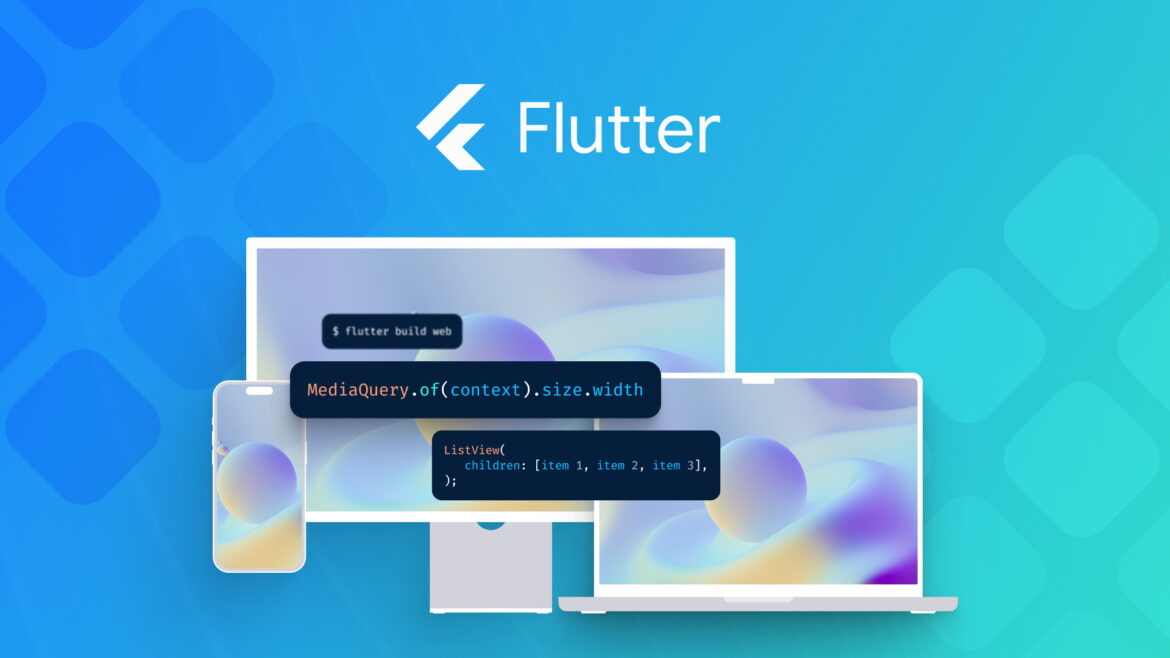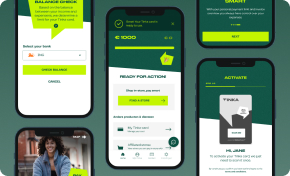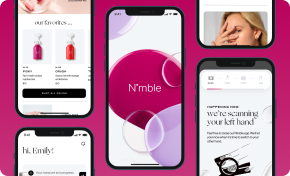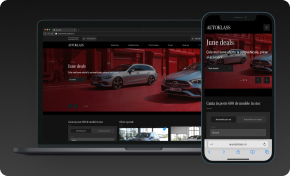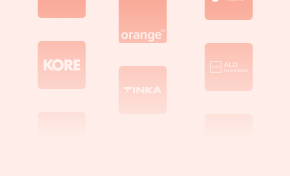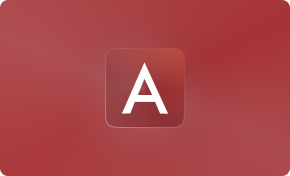As Flutter gains traction in web and app development, many CTOs, Technical Managers, and Stakeholders are considering Flutter Web for its unique blend of cross-platform capabilities and growing support in Flutter app development. If you’re a CTO, Technical Manager, or Stakeholder looking to build a new web or mobile project, you may find yourself in a labyrinth of technology choices. Each one promises to be the silver bullet solution to your specific needs, whether it’s for a responsive Flutter Web application, a versatile Flutter mobile app, or both.
Ultimately, it all boils down to choosing the right framework for your unique requirements, the nature of the project, and the technology’s potential for scalability, maintainability, and cost-effectiveness. Flutter Web has quickly gained attention as a promising solution in the development community. In this post, we’ll break down Flutter Web’s pros and cons to give you a balanced view of its potential for your next web project.
As with any modern tech solutions, it’s important to take a balanced approach when it comes to new technologies. While there may be promising advantages, there could also be limitations or challenges that require careful consideration.
An article titled “Flutter Reigns Supreme: The Most Popular Cross-Platform Mobile Framework in 2023” discusses the growing popularity of Flutter among global developers. It provides a thorough overview of why Flutter app development has become the go-to choice for cross-platform mobile app and web projects. The article highlights Flutter’s features and benefits, including its fast development cycle, hot-reload feature, and highly customizable UI.
It also showcases the impressive work completed by Flutter app development companies with numerous case studies and success stories. Hire Flutter developers who have experience and have found success using this technology. This post demonstrates the effectiveness of Flutter in real-world projects and the supportive Flutter community, which offers developers access to a wide range of packages and libraries. The article concludes that Flutter is the preferred cross-platform mobile framework due to its rising popularity and numerous app development advantages.
For those considering Flutter for their next project, working with a Flutter app development company can offer valuable insights and Flutter Web tips to navigate the unique aspects of Flutter coding for web applications. Now, let’s delve into what Flutter Web is and why it’s worth considering for your project.
Web Development Services Tailored to Your Business Needs
Customized Web Solutions to Elevate Your Online Presence
Discover Web DevelopmentWhat is Flutter Web?
Flutter is an open-source UI toolkit developed by Google. Initially, it was designed to build natively compiled mobile (iOS and Android) applications from a single codebase. However, Google expanded its horizons by introducing Flutter Web, extending the same capabilities to web applications. This means you can now use the same code to create mobile and web applications.
The magic lies in Flutter’s architecture. It uses the Dart language (also developed by Google), which can be compiled into both native mobile and JavaScript for the web, allowing developers to write code once and deploy it across multiple platforms, saving substantial time and resources.
Since its official release in 2019, Flutter Web has gained traction due to its cross-platform capabilities, rich widgets, and the promise of high-performance applications. However, as with any technology, it is not without its drawbacks.
Why Consider Flutter Web?
A significant advantage of Flutter Web is its ability to create highly expressive and flexible UIs with a single codebase for both mobile and web. This means businesses can maintain consistent branding and user experience across different platforms with less effort.
The Dart programming language, the backbone of Flutter, is easy to learn and powerful. It is strongly typed and object-oriented, which helps catch potential bugs early in Flutter development projects. Dart also provides excellent support for asynchronous programming, an essential requirement for I/O operations, user input, and animations.
Another standout feature of Flutter Web is its hot-reload capability. It allows developers to see the effects of their changes almost instantly without losing the current application state. This dramatically speeds up the development process and makes debugging a breeze.
Pros of Using Flutter Web
Flutter Web offers several benefits that make it a strong choice for cross-platform projects, especially for those focused on efficiency and visual appeal. These features can provide significant advantages in development speed, code flexibility, and user experience for Flutter Web app development.
- Code reusability: One of the most compelling advantages of Flutter Web is code reusability. The same codebase can be used to build iOS, Android, and web applications. This significantly reduces development time and cost.
- Unified environment: Flutter Web provides a unified environment for front-end and back-end development. This simplifies the Flutter development process, as developers don’t have to switch between different environments and languages. Flutter Web features a hot-reload tool that can quickly compile and apply code changes, speeding up the development process.
- Customizable widgets and expressiveUI: With its rich set of customizable widgets and expressive UI, Flutter Web enables the creation of visually appealing applications. Flutter for application development provides excellent support for animations, making it easier to create interactive and engaging user interfaces.
- As Flutter is a compiled language, it can deliver app performance that rivals native apps.
Enhance User Experience with Our UX/UI Design Services
Crafting User-Centered Designs That Enhance Engagement and Maximize Conversions
Discover UI/UX DesignCons of Using Flutter Web
Despite its many advantages, the limitations of Flutter Web should be taken into consideration for any web project. Using Flutter for web development offers cross-platform capabilities, yet it faces challenges such as larger app sizes and limited SEO support. Understanding these Flutter Web limitations will help you decide if it’s the right choice for your project.
- Flutter Web apps larger in size: One downside is that Flutter Web applications are often larger in size compared to those built with other technologies. This can lead to slower load times, affecting user experience, especially on slower internet connections. It’s important to account for this size difference for web projects prioritizing speed.
- Dart is not widely used: Additionally, while Dart is a powerful language, it is not as widely used as JavaScript or TypeScript. This could potentially lead to challenges in finding experienced Dart developers. If you need to hire Flutter developers with Dart expertise, look for a specialized Flutter app development company that understands the most important pros and cons of Flutter Web.
- Limited support for SEO: Another important consideration to remember when using Flutter Web for web development – is its limited support for SEO. As you mentioned, it may be necessary to separate the web app that requires strong SEO and use a different framework, such as Angular, for those sections. This additional work and maintenance can disadvantage some projects, especially those relying strongly on search engine traffic. However, if SEO is not a significant focus of the project, then Flutter Web could still be a suitable choice.
Case Studies
Despite being relatively new, Flutter Web has been adopted by several notable companies. For instance, Rive, an animation platform, used Flutter Web to build their interactive web app. They praised Flutter’s ability to run complex animations smoothly and its excellent tooling.
Another example is The New York Times. They used Flutter to create a fun, interactive game for their users. The team appreciated the ability to write the code once and deploy it on multiple platforms. Consider these Flutter Web tips for your own cross-platform project.
Other examples can be:
- Supernova: Supernova, a design system platform, used Flutter to build their collaborative web app for designers and developers. This showcases how Flutter can be utilized for web development.
- iRobot: iRobot, known for their Roomba® Robot Vacuums, also created a programmable robot teaching coding skills. The iRobot Coding App, developed by the iRobot Education division, allows coders to control a virtual or real-life robot using Flutter. This demonstrates how Flutter can be used in educational applications.
- Google Classroom: The Google Classroom team decided to switch to Flutter after seeing the productivity increases the GPay team experienced. This decision led to the development of the Google Classroom app using Flutter. This case study exemplifies the adoption of Flutter by a well-known web application.
Please note that the information provided is a summary of the case studies. For more detailed information, I recommend referring to the respective sources.
These are just a couple of examples that demonstrate Flutter Web’s potential to create rich, high-performance web applications.
Custom Software Development for a Competitive Edge
Build Unique Software Solutions with Our Expertise
Explore Custom SoftwareKey Considerations When Choosing Flutter Web Development
Choosing the right technology for your web project is a critical decision that can significantly impact the project’s success. When considering Flutter Web, you should evaluate the following factors:
Project requirements: Do you need a highly interactive, expressive UI? Are you looking for a unified environment for front-end and back-end development? Do you need to deploy the application on multiple platforms? If your project requires complex functionality or integration with other tools or platforms, you may want to reconsider using Flutter Web.
Team expertise: Does your team have experience with Dart, or are they willing to learn a new language? Is your team comfortable working with a technology that’s still in its early stages of development? If your development team does not have experience with Flutter app development, it may take longer to get up to speed with the language and platform.
Target audience: If your target audience primarily uses desktop or laptop computers, Flutter Web may not be the best option, as mobile-app-oriented features may not be as useful in those contexts.
Future plans: Are you planning to scale your application in the future? Do you foresee a need to incorporate features that Flutter Web might not currently support?
You can search for more information online or contact a Flutter Web expert like HyperSense to gain further insights. Their knowledge and expertise can guide you in making the best choice for your business needs.
Experience Expert IT Consultancy
Transformative Strategies for Your Technology Needs
Discover IT ConsultingConclusion
Flutter Web brings an exciting proposition – the ability to build high-quality, expressive web and mobile applications from a single codebase. Its rich set of features, combined with the robustness of the Dart language, can offer significant advantages in terms of productivity, cost-effectiveness, and user experience throughout the process of Flutter development.
However, it is essential to consider its restrictions in the early stages of Flutter mobile app and web development. It may not be the right fit for every project. But for those willing to navigate its learning curve and growing pains, Flutter Web can be a game-changer.
As with any major technology choice, carefully weighing the Flutter Web’s pros and cons is important for success. Consider Flutter Web limitations and your unique requirements, your team’s expertise, and the project’s future needs. And remember, the best technology is the one that enables you to deliver a high-quality product within your time and budget constraints.
So, are you embarking on a new web project? Get expert guidance on the perfect technology for your needs. Contact HyperSense today for personalized tech consultancy and set your project up for success!
